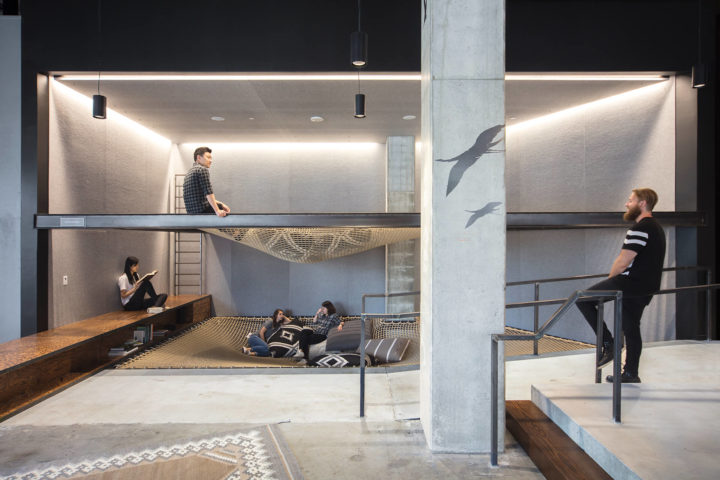A multisensory coffee for the tea ceremony
Taking over the ground and first floors of a modern low-rise in Osaka, Tokyo-based studio I IN has created a coffee shop that is futuristic,…
In Hackney Central, under the arches of the metro lines, the Night Tales complex, designed by Sella Concept, has opened and is home to many millennial key players. The food court is vast, street food on offer and as well as some alcoholic beverages, all available while enjoying ephemeral concerts. Under the pink roof of Night Tales, the mantra is this: Anyone can be a potential friend, even if only for one night.
This gathering place is also a witness to a trouble that overwhelms this generation—that of loneliness. The 18- to 24-year-olds are said to feel three times more lonely than those over the age of 64. In the United Kingdom, which recently appointed a Minister for Loneliness, there is talk of an epidemic. This problem of loneliness is not only expressed at night, it is also expressed during the day through the development of co-working spaces.
Many communities are now trying to find a solution and this solution involves the creation of community spaces. These are designed to foster relationships, help people make contacts while providing them with spaces to meet.
Many of these spaces have emerged in urban areas over the past two years, but what distinguishes The Collective in Seattle, designed by Gendler, is its unexpected complexity. With options such as a bar open day and night, a gym, a garden with a two-story hammock, yoga classes, painting and live music, this Seattle-based “social club” appears to be a nighttime and daytime alternative to meet the anxieties of this generation.
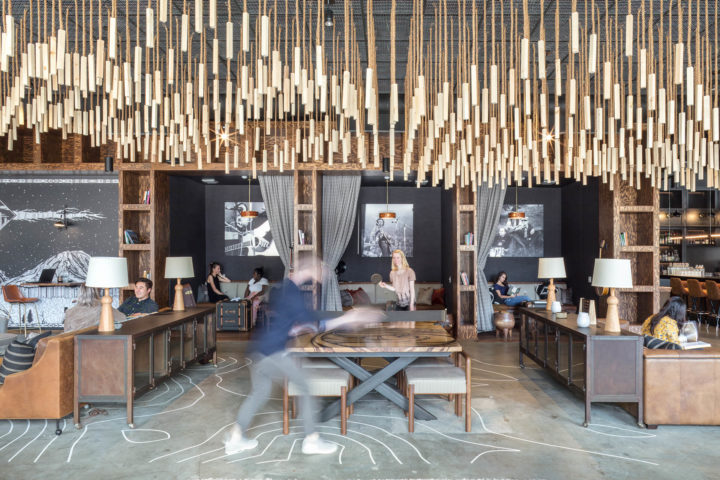
The Collective creates bonds between young people to help them develop their passions and meet to form micro-communities, more commonly known as groups of friends.
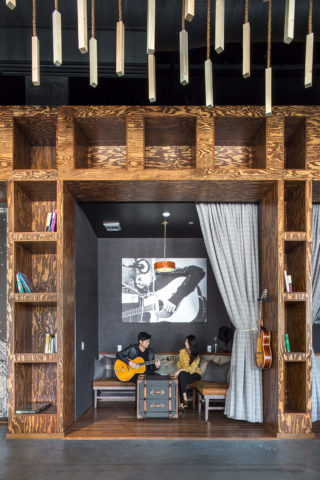
The Collective offers a generous 1400 m² space for everyone to express themselves and realize their passions. It is often people from the world of technology, coming from all over the country to work in large companies, who come together to forge bonds with each other.
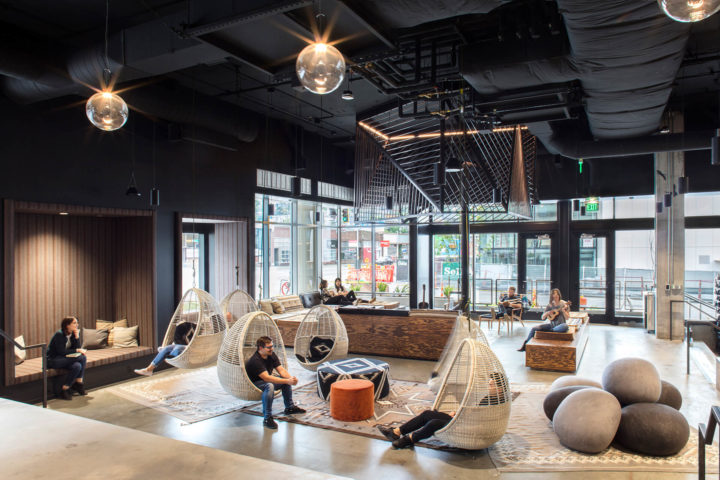
Quality relationships are created through repeated and unplanned interactions, like those typically occurring at school or university. On the other hand, the relationships that can be developed in adulthood are often less genuine.
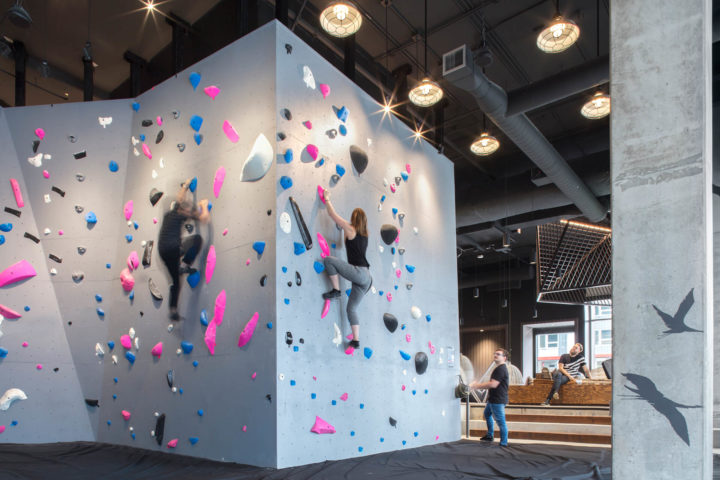
“With proximity, people will eventually connect organically, naturally. However, by creating a dynamic space designed for creative collisions, catalyzed by shared activities, these connections occur much more quickly,” said Tommy Trause, founder of The Collective.
